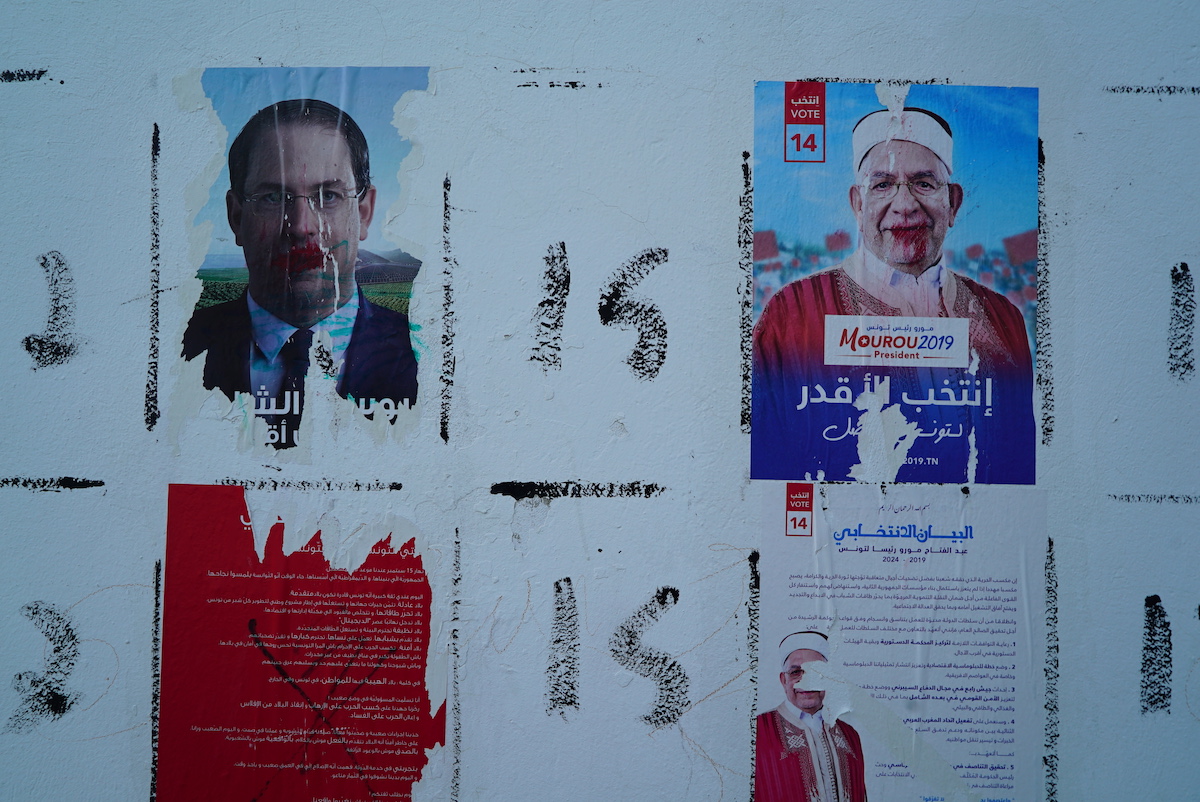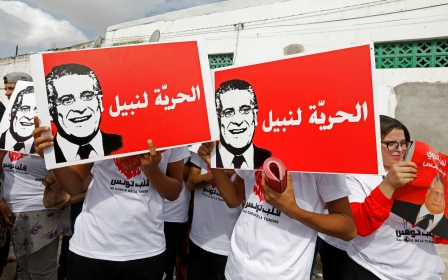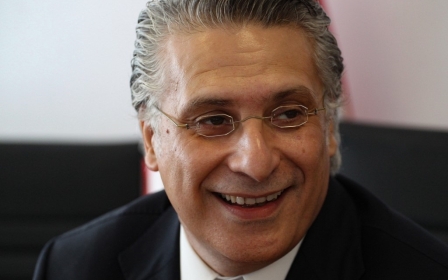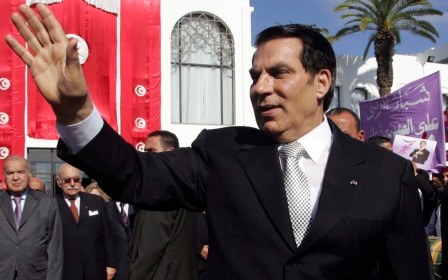Four things to know about Tunisia's parliamentary election
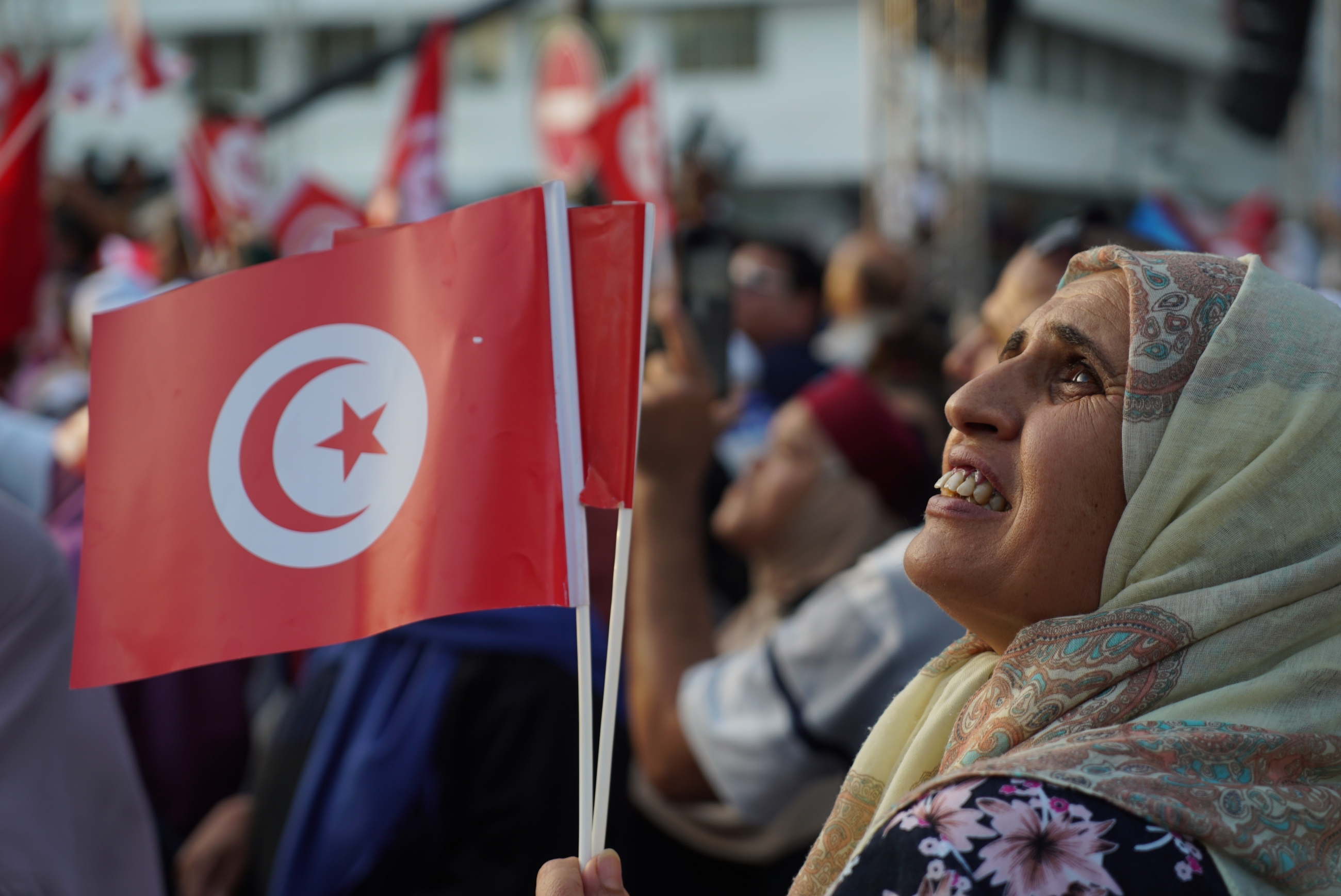
Tunisia has advanced more than any other country affected by the 2011 Arab Spring uprisings, but Sunday's parliamentary elections come against a backdrop of serious social and economic challenges and in the shadow of more widely covered presidential polls.
The country's economy has struggled since long-time ruler Zine El Abidine Ben Ali was removed from power, with both national debt and unemployment higher today than before the uprising, fuelling widespread dissatisfaction with established political parties and the political process as a whole.
According to figures released by the electoral commission, only 45 percent of registered voters took part in the first round of the presidential elections last month, compared with 64 percent in 2014.
With a large pool of candidates competing in the polls, analysts say it is difficult to predict the outcome.
A recent Afrobarometer survey found that only 46 percent of Tunisians believed that democracy was the most preferable form of government, down from 70 percent in 2013.
New MEE newsletter: Jerusalem Dispatch
Sign up to get the latest insights and analysis on Israel-Palestine, alongside Turkey Unpacked and other MEE newsletters
Here are four things you should know about Tunisia's upcoming parliamentary election:
How does the electoral system work?
The electoral system is based on proportional representation, with each of the country's regions having a fixed number of seats based on population.
Each governate is allocated one seat for every 60,000 inhabitants, so in Sidi Bouzid, the cradle of the Arab Spring uprising, there are eight seats available for a population slightly in excess of 480,000.
If 160,000 votes are cast in Sunday's vote, the quota for each seat there will be 20,000.
With 217 seats up for grabs, the party that secures more than 109 seats in Sunday's single round of voting has the right to appoint a prime minister and form a government.
Still, analysts say it is unlikely any one party will win a majority, so whoever is finally elected prime minister, a post that must be filled within the next two months, will likely set up a government with control over most, but not all, portfolios.
The presidency, for which there will be a vote on 13 October, will be in charge of foreign policy, defence and national security.
In recent years, the division in leadership roles has been questioned by leading politicians who claim it leads to a state of paralysis.
In a 2017 interview, former president Beji Caid Essebsi said the system had "nearly paralysed government work".
"Its hybrid nature does not help the government to carry out its duties in managing the state and achieving development goals," he said.
In the last parliamentary election, a coalition government was made up of secularists, Islamists and smaller parties.
Kais Saied, who is running against jailed media mogul Nabil Karoui in the presidential election, has also criticised the system and proposed abolishing parliamentary elections in favour of a "bottom-up" approach, in which parliamentarians are chosen from elected local councils.
Both candidates beat numerous more-experienced figures, including the current prime minister and two former prime ministers, to make it into the runoff.
Who are the main parties?
More than 15,000 candidates are running in Sunday's vote on more than 1,500 lists. Unlike in 2014, at least a third of the lists are made up of independents.
The Nidaa Tounes Party won 86 seats in that vote, but analysts say it's unlikely to repeat that performance.
Two-thirds of its members have subsequently joined other parties, including incumbent Prime Minister Youssef Chahed, who left Nidaa Tounes earlier this year to form Tahya Tounes.
His popularity has flagged recently since Karoui launched veiled attacks against him, claiming he was behind "attempts to undermine his growing popularity".
Sarah Yerkes, a fellow at the Carnegie Endowment for International Peace, told Middle East Eye that Sunday's vote may drastically change the political landscape.
"I think Chahed and his camp's moves in regard to Karoui really backfired and ended up costing Chahed quite a few votes," she said.
"People saw Chahed as corrupt and engaging in sketchy if not illegal manoeuvring... so it is not clear whether Tahya Tounes as a party will be able to distance itself from Chahed to secure a sizeable win.
"I expect it will win a decent number of seats, maybe in the 20-30 range, but it will not be the top performer."
While the moderate Islamist party Ennahdha secured 69 seats in the last election, it too has seen its popularity wane in recent years.
Still, Oussama Sghaier, a spokesman for the party, told MEE that Ennahdha had strong support in both urban and rural areas because of its "strong economic manifesto".
"Unlike other parties who are running on 'strong' political leaders and actors, we have put together a clear vision for the country... and unlike them, we have a proven track record in parliament."
For his part, Saied, who is running as an independent, has shunned the party system and offered no endorsements, leaving parties to court his diverse array of supporters.
Other parties are also presenting fresh faces. The Aich Tounsi movement is financed by Olfa Terras, a wealthy Tunisian-French philanthropist whose husband is known to be close to French President Emmanuel Macron.
Who's likely to win?
Compared with 2014, when Nidaa Tounes and Ennahdha shared power, the outcome of these elections is unpredictable, especially after the upset in the first round of the presidential poll.
Most candidates claim to have the economy at the heart of their campaign, realising that poverty and unemployment were the main factors that triggered the 2011 Arab Spring uprising.
National debt amounts to more than 70 percent of economic output, a significant increase compared with the pre-revolution level of 40 percent.
Unemployment has also risen from 12 percent before the uprising to 15 percent today, and reaching 40 percent in some cities.
Analysts say it's unlikely any one party will win a majority of seats, but according to informal surveys, independent lists may lead the parliamentary election.
"I expect independents to perform quite well, similar to the 2018 municipal elections where independents as a whole (recognising that they are not a cohesive bloc) performed better than either Nidaa Tounes or Ennahda," Yerkes said.
Analysts have also said a strong performance by Karoui's Qalb Tounes party could boost his chances in the presidential run-off.
"Qalb Tounes may very well benefit from the persecution narrative Karoui's advisers have been putting out there, but if Qalb Tounes performs very poorly, that is a bad sign for Karoui's chances," Yerkes added.
Sharan Grewal, a research fellow at the Brookings Institution, told Middle East Eye that Ennahdha may "enjoy a boost from Saied voters," adding: "Since Kais Saied does not have a party and did not endorse any party for the parliamentary elections, his voters will likely be distributed across several parties and lists, including Ennahdha.
"Ennahda, like many others, has tried to convince Saied voters that voting for Ennahda will allow it to form a government that will be pro-Saied. If credible, Ennahda could therefore enjoy a boost from Saied voters."
Will the parliamentary vote affect the presidential election?
For several weeks, Karoui's unlicensed Nessma TV station has been broadcasting stories critical of the government, with local and international media channels focusing on the presidential race over parliamentary polls.
He is poised to remain in jail on 13 October, after an appeals court rejected a request to release him.
Legal scholars are not in agreement on whether Karoui would gain presidential immunity if he won the election or if he would even be able to attend his own swearing-in ceremony.
He has also said that if he loses, he will contest the results on grounds of lack of equal opportunity.
Analysts say such a development could throw the democratic process into turmoil.
"The thing to watch in these parliamentary elections is who comes out on top - Qalb Tounes or Ennahda," Sharan said.
"If Qalb Tounes wins by such a large degree that it seems likely they will form the government, that could help Nabil Karoui in the second round."
Middle East Eye delivers independent and unrivalled coverage and analysis of the Middle East, North Africa and beyond. To learn more about republishing this content and the associated fees, please fill out this form. More about MEE can be found here.


